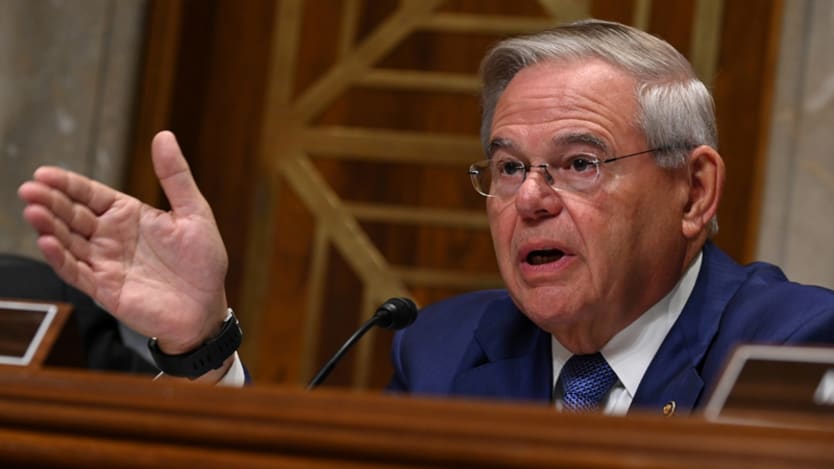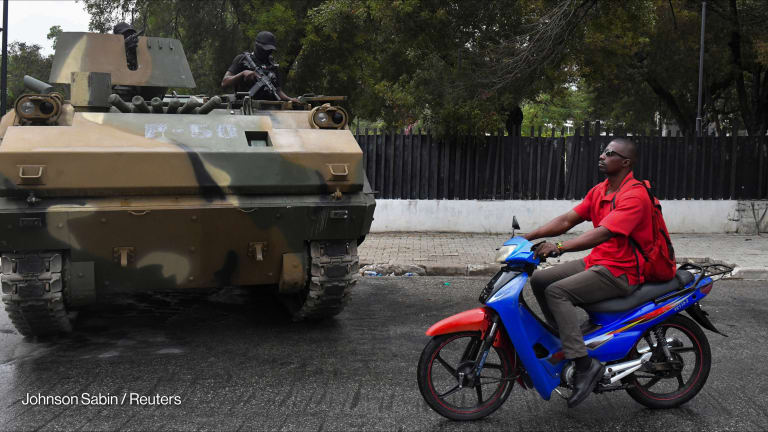
WASHINGTON – U.S. Senators were looking for ways Congress might be able to assist in furthering Ebola response efforts at a hearing on Wednesday. In the 2014 outbreak, part of the answer was a $5.4 billion special appropriations package, but administration officials testifying at the hearing said money may not be the solution now.
The Ebola outbreak has been ongoing for nearly a year, and last week the World Health Organization declared it a global public health emergency. Senators at a U.S. Senate Committee on Foreign Relations subcommittee hearing expressed their concern for the situation, summed up by the subcommittee chairman Sen. Lindsey Graham, a Republican from South Carolina, as “everybody up here wants to help you, give us a quick shopping list of how we can help you.”
But the panel of administration officials from the Centers for Disease Control & Prevention, the U.S. Agency for International Development, and the State Department didn’t exactly take him up on the offer. The hearing instead touched on a number of issues involved in the ongoing epidemic — including funding, DRC leadership, and security concerns.
One of the issues raised by Sen. Bob Menendez, a Democrat from New Jersey, was the administration’s decision not to grant DRC a waiver from the Trafficking Victims Protection Act sanctions until recently. He asked if any of the fiscal year 2018 funding that had been held by the administration as a result of sanctions was now being used to fund USAID’s strategy to work with communities to understand and support their needs beyond health.
More coverage on Ebola:
► Breaking: WHO declares global public health emergency in DRC Ebola outbreak
► DRC health minister quits as new president takes over Ebola response
► Q&A: How the Ebola declaration could threaten food security in DRC
Tim Ziemer, senior deputy assistant administrator at USAID who is helping lead the response effort, thanked him for his support “in this area” and said that the existing $136 million in USAID funding is not affected by the act, but that an interagency group is reviewing the implications of the act as a result of the outbreak, particularly as both Burundi and South Sudan are classified as tier 3 countries as well. He expects to hear a resolution of that review soon, he said, adding that not all of the fiscal year 2018 funding is being used.
Sen. Menendez said that it was unacceptable that funds were still being held up due to trafficking determinations and asked if any fiscal year 2019 money has been approved for the Ebola response. Ziemer responded that USAID continues to spend through the international disaster assistance funding, but did not say whether other funds had been approved.
Ziemer said that a “reset is underway” in the response efforts, the same language he used about a month ago, but he alluded to several significant adjustments in the last several weeks. A new strategy that will align humanitarian response with public health is expected in the next couple weeks, Zeimer said, and while the number of cases will likely increase in the short term, it should allow the DRC to “turn the tide,” he added.
Ebola funding increases as crisis worsens
As donors come under pressure to up their commitments, the World Bank, the European Union, and USAID have committed to additional funding to the Ebola crisis days after the outbreak in DRC was declared a global public health emergency.
USAID announced Wednesday it would provide an additional $38 million — $15 million of which will go to the WHO — to support the Ebola efforts, bringing total USAID funding for the response to more than $136 million since August 2018. The World Bank also announced a new commitment to the effort Wednesday, saying it would mobilize $300 million.
When asked if more money would help fight the epidemic, which has been made complex due to the instability of the region where the outbreak is located, Tibor Nagy, assistant secretary of state for African affairs, didn’t offer a straightforward “yes.”
“I wish money could help in this regard, but I think more than anything else time will help,” he said, adding that DRC President Félix Tshisekedi needs time to undo the damage done by his predecessors, but he has said he wants to engage.
Menendez also raised several questions about Tshisekedi and whether U.S. support for the president after questionable elections had hurt Ebola efforts. Nagy responded that Tshisekedi’s popularity has grown and the U.S. image within DRC has improved as well. And when asked if the U.S. was “all in” on Tshisekedi, Nagy said “for now we are,” adding that “we are guardedly optimistic.”
Nagy also responded to questions about the recent resignation of DRC’s health minister Oly Ilunga Kalenga by explaining that the president didn’t have confidence in him and that he would have been replaced soon anyway when a new cabinet is announced. The Ebola response efforts are being run from the president’s office now by a coordinating committee, and a new cabinet is expected to be announced in the coming weeks, Nagy said.
One of the issues the former health minister raised in his resignation letter was a concern that the international community would pressure DRC to adopt a second experimental vaccine. There have been concerns raised, including by the director of CDC, that there wouldn’t be enough doses of the vaccine currently in use. But at the hearing, Ziemer said there are more than 800,000 doses in the vaccine pipeline between now and March 2020, which should meet the needs based on current use and the scale-up strategy. USAID is watching the issues closely and working with the Department of Health and Human Services on production schedules, Ziemer said.
The hearing touched on the increased risk of the disease spreading and efforts by CDC and others to prepare neighboring countries to respond, work that has been funded through the Global Health Security Agenda, which was supported by the West Africa response special appropriation package. That funding is set to expire in September, and Sen. Chris Coons, a Democrat from Delaware, asked if the U.S. government could maintain programming or would need to scale back operations if funding levels are not maintained.
Ziemer said that the global health security agenda was an administrative priority, and while the current funding is “modest,” it would allow the program to continue.






